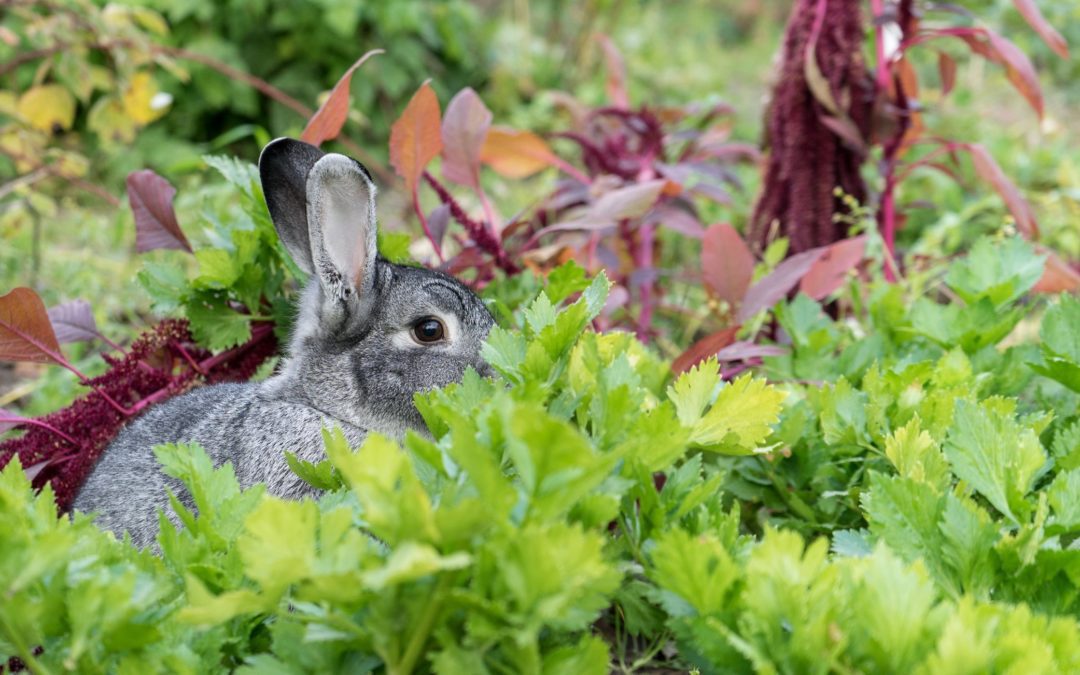Elmer Fudd knew what he was talking about. Despite their adorable faces, bunnies can do an awful lot of damage to your yard. A couple of rabbits can strip the bark from young trees or decimate an entire vegetable garden overnight. They are also extremely adept winter pruners, mowing down as many small shrubs as they can reach.
How can you tell if rabbits are causing the damage you see? On older stems, look for stripped bark to a height of 15 inches. And on newer growth, check for clean, precise cuts that mimic pruning shears. Insects often eat edges or create holes, while deer and other larger herbivores, will tear at foliage, leaving jagged damage.
The surefire way to keep bunnies away from your plants is to install a barrier. There are lots of decorative fence panels on the market, but they are usually too short to be effective. Ideally, the barrier should be about 30 inches high above ground, and be buried 6 inches below. This will protect your plants from both hopping over and burrowing under, and may be the only way to keep rodent pests away from your vegetables. But honestly, who wants to fence in their entire yard?
Once the critters are in your yard though, it’s time to break out some bigger weapons. Repellents work in a couple of ways, through smell or taste. Use the smelly repellents, like predator urine granules and concentrated stinky blends, at the edges of beds and near fence openings, creating scent barriers around planting areas. Spray or sprinkle them on the mulch and other hard surfaces, saving your foliage from that unattractive speckling that the liquid products can leave. Apply hot pepper wax, a taste repellent, directly on the plants, making the foliage much less tasty. In the spring when plants are particularly vulnerable, these products should be applied every week. As foliage matures, usually by mid summer, you can make applications less often, about every other week.
Another method you can consider is to try planting things that are just unappetizing. Use plants whose foliage might have a weird mouth-feel, like crinkly-leafed astilbe or ferns, waxy lenten roses or sharp-edged irises. Perennials and shrubs with hairy foliage, such as lungwort, poppies and sumac are usually left unmolested. The strong-tasting, but very ornamental alliums and catmints, and the sharply scented lavenders and junipers are hardly ever bothered. And spiny or prickly plants, like rugosa roses and barberries are almost always safe.
Finally, remove habitats that rabbits find attractive. Cleaning up brush and lawn debris, mowing your grass regularly and filling in any old burrows will send them packing. In our mostly suburban gardens, getting rid of habitats may just tip the scale and keep your yard bunny free.


